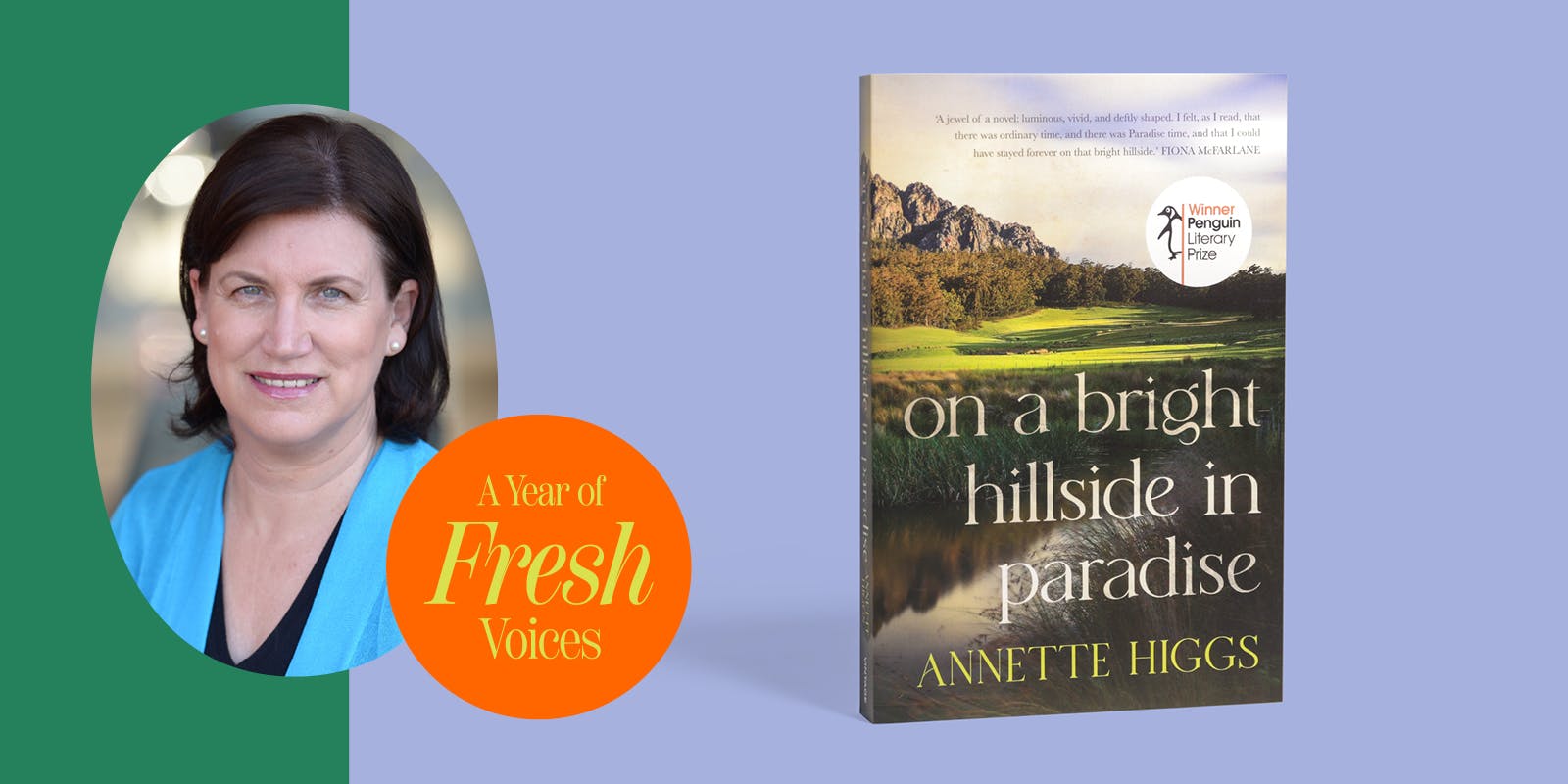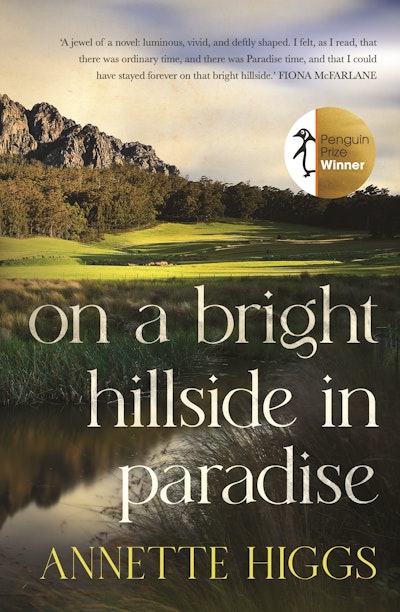The 2022 Penguin Literary Prize winner shares her unique method of writing On a Bright Hillside in Paradise.
What was your writing process like for On a Bright Hillside in Paradise? Did you have a writing routine or any regular rituals?
I wrote On a Bright Hillside in Paradise as part of a Doctorate of Arts at the University of Sydney, so I was a full-time student and worked on it regularly – every day. However, this work included a great deal of research and writing an academic exegesis about the subject matter, as well as the fiction writing. I was enthralled to discover how the research fed into the fiction and vice versa. It was a stimulating and rewarding process, though intense. I swapped between rigorous academic reading and notetaking, using techniques like 'first pages' (free writing first thing in the morning) to free up imaginative ideas for the fiction. I'm also a keen walker. I find that knotty matters can resolve themselves when I'm in motion, and I remember the precise spot on the path near my house where I had the idea to use a 'starburst' structure for Bright Hillside.
How did you first come up with the idea for the book?
When I decided to apply for the doctorate, I had to quickly formulate an idea, a synopsis, and a writing sample. The arrival of the Brethren in Kentish leapt into my mind almost instantly. I think the curious goings-on in those far-off days had been waiting in my mind ever since I first heard about them many years ago. The novel is based on my family history and stories I heard from my mother.
What was your big break into publishing?
Winning the Penguin Literary Prize 2022. The shortlist itself was extremely validating; winning the prize allowed my novel to go out into the world.
How long have you been working on this book?
About four years – three years writing intensely to submit it for my degree, then a year of re-writes and edits to prepare it for publication.
What was the publishing process like (finding an agent, submitting manuscripts, etc.)?
I pitched the manuscript to several agents via the ASA's Literary Speed Dating with no luck. I also submitted it to several unpublished manuscript contests but was spared too much more rejection by its success with the Penguin Literary Prize.
I have been submitting short work to literary journals for over five years, and I'm certainly aware of the strength of heart needed to receive many, many rejections before you can bask in the glory of a few acceptances.
What most excites you about your book being published in 2023?
The fact that people will actually read the story. For so long, while writing, I believed no one would want to read a book about white settlers in the bush and, moreover, religion. But it remained the only story I wanted to tell, so I pressed on. To have achieved publication means that my characters have at least a fighting chance of coming to life in readers' minds.
Do you have a favourite book or author?
Many. I have a real admiration for literary fiction I don't think I could ever emulate, authors who stun me with their skill and deep erudition: Rachel Cusk, W.G. Sebald, and Jon Fosse. Amongst Australian authors, George Johnson is a classic favourite, and modern writers Fiona McFarlane (who was my teacher), the amazing Alexis Wright, Tasmanian writers Amanda Lohery, Richard Flanagan, and Robbie Arnott. I'm currently devouring New Zealander Eleanor Catton's terrific new novel.
What inspired you to become a writer?
Probably being surrounded by books from childhood and developing early a profound belief that stories have the power to create alternative worlds. That's heady stuff. I've had draft stories 'in the bottom drawer' for as long as I can remember (they were not very good).
What did you want to be when you grew up and why?
I grew up in the sixties and came of age in the seventies. I only knew what I didn't want to be: a typist (as my mother wished), a school teacher or a nurse. Those were the principal options. A school careers councillor suggested law, a profession about which I had only the foggiest notions. However, I followed the serendipity and spent 30+ years as a lawyer. No regrets.
If you could go back in time and give your past self one piece of advice, what would it be and why?
The world will change a lot, and much faster than you could imagine possible. Keep your eyes peeled. Knowing this, become adaptable and don't get too attached to anything.
What is the best writing lesson/tip you have ever received?
When waffling on about my ideas, the themes of interest to me, and the incidents I wanted to write about a wise teacher asked: how can you dramatise this? I ask myself that question often to keep on track. It encapsulates the hard truth that craft and technique are needed to bring a story to life for an audience.













